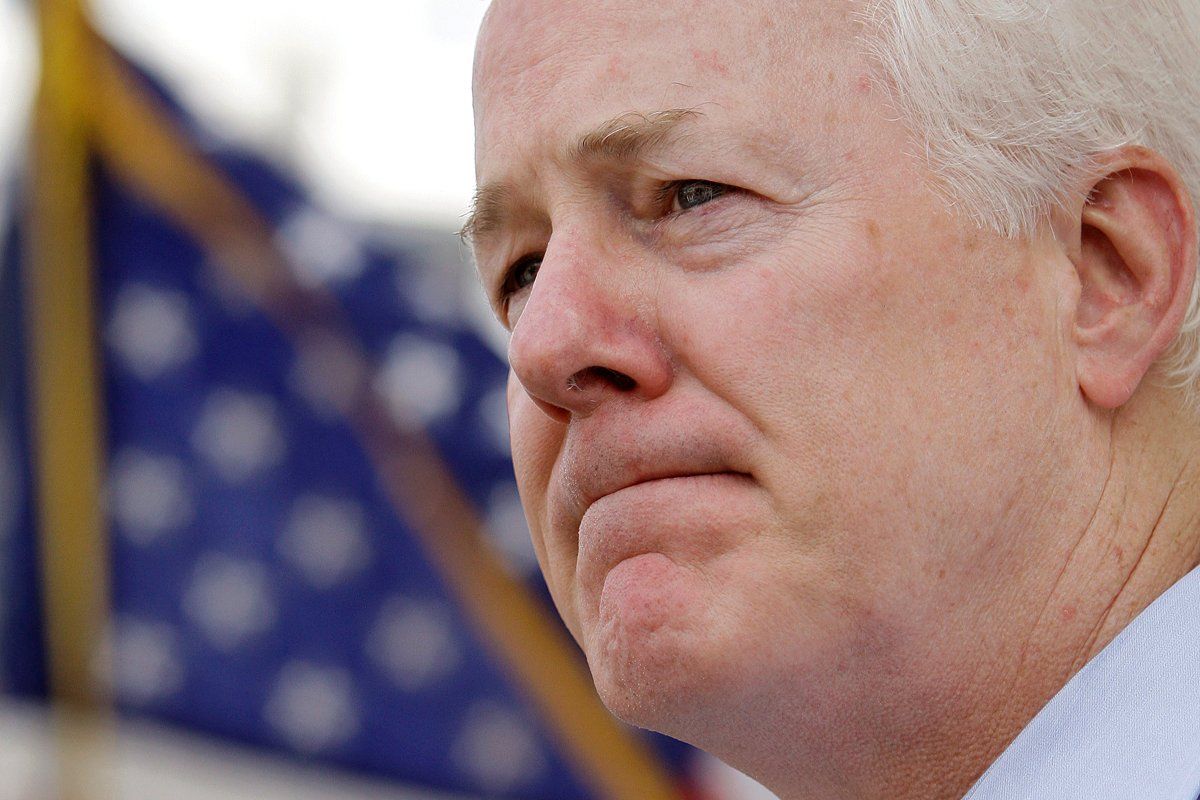
The 112th Congress hasn't even been sworn in yet, but the Tea Party has already flexed its muscles, with even Senate Minority Leader Mitch McConnell supporting an earmark ban. But while McConnell may have lost the day on that issue, another member of the GOP leadership isn't backing down. Via National Review, Roll Call reports that Sen. John Cornyn of Texas, the chair of the National Republican Senatorial Committee, took what's widely being interpreted as a shot at Sen. Jim DeMint of South Carolina, a Tea Party favorite, during a closed-door meeting Tuesday.
Here's Roll Call's John Stanton:
Sen. John Cornyn said … he expects colleagues to bring their concerns to him about candidates he recruits as National Republican Senatorial Committee chairman—and not to help mount challenges against them, Republicans familiar with the meeting said Thursday. Although not mentioned by name, the Republicans said the Texas lawmaker's speech was clearly intended for the ears of Sen. Jim DeMint.
DeMint struck a conciliatory note—saying he didn't plan to work to run conservative challengers against Republican incumbents—but the pushback has already started elsewhere. RedState editor Erick Erickson, a high-profile Tea Party advocate, called Cornyn's speech "pitiful," adding, "We got into this mess because Cornyn didn't listen. He did not listen to those who backed Pat Toomey. He did not listen to those who backed Marco Rubio. He did not listen repeatedly. Senator, if you want conservatives to work with the NRSC it is very simple—let the people pick their nominees and stay the heck out of primaries."
It's easy to see Cornyn's frustration. He held the NRSC post this year and has opted to remain in it, and his job is to get the most Republicans elected to the Senate, period. To that end, he works to recruit the strongest, most electable candidates he can (of course, he also wants to find candidates who will support the party orthodoxy). But DeMint has repeatedly complicated Cornyn's task, backing more conservative candidates in races across the country, and with some big successes: Rubio of Florida is arguably the year's biggest Republican rock star, and he was an insurgent candidate who knocked off establishment pick Charlie Crist, who's not even a Republican anymore. DeMint also championed Kentucky's Rand Paul over party pick Trey Grayson.
But DeMint also had several major misses this year—two of which helped Democrats maintain a majority in the Senate. There was, of course, Christine O'Donnell, the disastrous Delaware candidate whom DeMint backed over moderate frontrunner Mike Castle, and Sharron Angle, who shockingly lost to Senate Majority Leader Harry Reid in Nevada. Joe Miller beat Sen. Lisa Murkowski in Alaska's GOP primary but couldn't hold back her write-in candidacy. That didn't hurt the GOP, because Murkowski will still caucus with the Republicans, but she's already proving herself to be a bit of a loose cannon.
At the same time, Erickson is correct that Republican voters have the right to choose candidates they feel better represent them, although his contention that letting DeMint choose the GOP's candidates would have been better for the party is highly questionable. In Kentucky and Utah, for example, DeMint surely managed to produce a more conservative senator than would otherwise have been elected, but it's hard to make the case that he helped elect any Republican to a seat Democrats would otherwise have won.
This skirmish is in its opening stages, but expect to see more come of it in the following weeks and months. It's on issues like this that the rubber meets the road in the conflict between the GOP establishment and the Tea Party, between pragmatism and idealism. And unlike the earmark ban, an almost entirely symbolic gesture, this will have serious consequences for the direction of the Republican Party.
Uncommon Knowledge
Newsweek is committed to challenging conventional wisdom and finding connections in the search for common ground.
Newsweek is committed to challenging conventional wisdom and finding connections in the search for common ground.
About the writer
To read how Newsweek uses AI as a newsroom tool, Click here.





